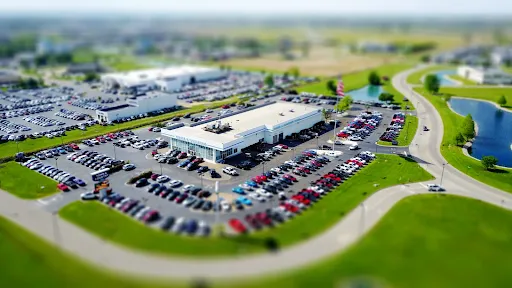For entrepreneurs with a passion for cars and a keen interest in business, venturing into an automotive franchise can be a rewarding path. The automotive industry has been a cornerstone of economic progress for over a century, continuously evolving to cater to the needs and preferences of consumers. Today, this industry presents a plethora of opportunities, ranging from traditional car dealerships to auto repair services and emerging trends in electric and autonomous vehicles.
A franchise allows entrepreneurs to operate under an established brand, benefiting from its reputation, business model, and support structure. This can significantly reduce the risks associated with starting a business from scratch. In the automotive sector, this translates into a wide array of options such as car dealerships, maintenance services, parts retailers, and specialized services. Moreover, the ongoing shift towards sustainability and technological advancement is creating new avenues for entrepreneurs. This article will cover all you need to know to decide if starting an automotive franchise is right for you!
Table of Contents
Types of Automotive Franchises
Car dealerships are one of the most recognized types of automotive franchises. These dealerships may specialize in new and/or used cars. In addition to traditional gasoline-powered vehicles, many dealerships now also offer electric and hybrid options, which are growing in demand. Another avenue closely related to car dealerships is auto repair and maintenance services. With car ownership being widespread, there is a constant need for services like oil changes, tire rotations, and general maintenance.
Retail franchises are essential for car owners looking for replacement parts or wanting to customize their vehicles. This segment caters to both DIY enthusiasts and professional mechanics with auto parts and accessories. Other prominent options are car rental services and car wash/detailing franchises. Car rental franchises cater to travelers, businesses, and sometimes even locals who need a vehicle temporarily. Car wash and detailing franchises focus on the aesthetic aspect of car care, providing services that range from basic washes to in-depth cleaning and restoration. Lastly, with the advent of technology and a shift toward environmental consciousness, specialty automotive services such as electric vehicle charging stations and customization services are emerging as promising ventures. Aligning your interests, skills, and current market demand will guide you to automotive franchise opportunities that are the best fit for you.
Market Analysis
In recent years, the automotive industry has been undergoing significant transformations. One of the most prominent trends is the shift toward electric vehicles (EVs). According to a report by the International Energy Agency (IEA), global electric car sales jumped by 40% in 2020 despite the pandemic, reaching around 3 million units. The IEA predicts that the number of electric cars on the road will rise from about 7.2 million in 2019 to around 145 million by 2030 under current policies. This surge in EV sales is attributed to various factors, including government incentives, decreasing battery costs, and growing consumer awareness regarding environmental sustainability.
Furthermore, the automotive aftermarket industry is constantly experiencing growth. A report by MarketsandMarkets estimated that the automotive aftermarket size was valued at USD 378.4 billion in 2021 and is projected to reach USD 474.9 billion by 2026, growing at a CAGR of 3.5% during this period. The aftermarket encompasses sales of automotive parts, equipment, and services after the sale of the automobile by the original equipment manufacturer (OEM) to the consumer. This segment is driven by factors such as the aging vehicle fleet, the rising demand for replacement parts, and the increasing number of vehicles in operation globally.
Given these trends, it’s important to closely monitor the evolving market dynamics and stay updated with the latest market reports and analyses to make informed decisions.
Legal and Regulatory Requirements
Legal and regulatory compliance is an integral aspect of operating an automotive franchise. As an entrepreneur, you need to be aware of and adhere to various laws and regulations that govern the automotive industry. You will need to understand and comply with a franchise agreement: a legal document that outlines the terms and conditions of the franchise relationship. Obtain necessary licenses and permits, which might include business licenses, dealer licenses, and environmental permits. Complying with environmental regulations is high-priority as automotive businesses can have substantial environmental impacts. Pay attention to safety standards and protocols to ensure the well-being of both employees and customers. This includes consumer protection laws, such as lemon laws and warranty obligations, which are important for automotive dealerships and repair shops. Staying compliant not only avoids legal complications, but also helps in building trust and reputation among customers.
Risk Assessment and Management
Market risks, such as economic downturns or changes in consumer demand, can significantly impact business profitability. To handle these uncertainties, conduct a comprehensive market analysis and create contingency plans as necessary. Competition is a significant risk; hence, having a unique value proposition and a strong marketing strategy can help distinguish your franchise from others. Staying updated and adapting to technological advancements such as the rise of electric and autonomous vehicles will be conducive to your success.
Legal and regulatory risks can lead to financial losses and damage to the brand’s reputation, making it important to stay compliant with all relevant laws and regulations. Effective risk management requires a proactive approach – identifying potential risks, implementing strategies to mitigate them, and continuously monitoring and adjusting these strategies as necessary.
Venturing into an automotive franchise offers a world of opportunities but requires thorough research, planning, and adherence to best practices. From evaluating franchise options to ensuring compliance with legal regulations and managing risks, an informed and strategic approach is key to success. As you embark on this entrepreneurial journey, let your passion drive you with a commitment to excellence!





